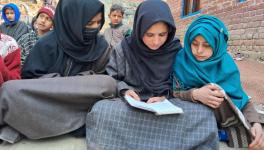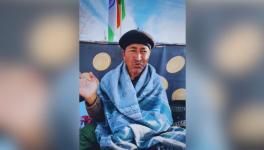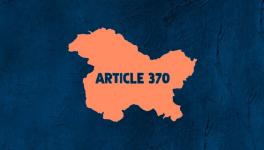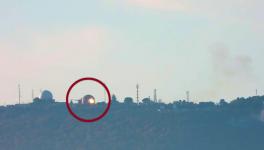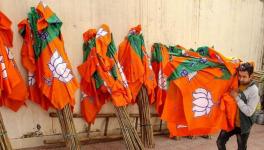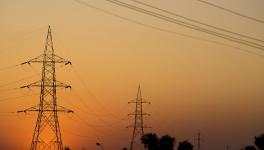A Silent Rejection That is Louder Than the Gun
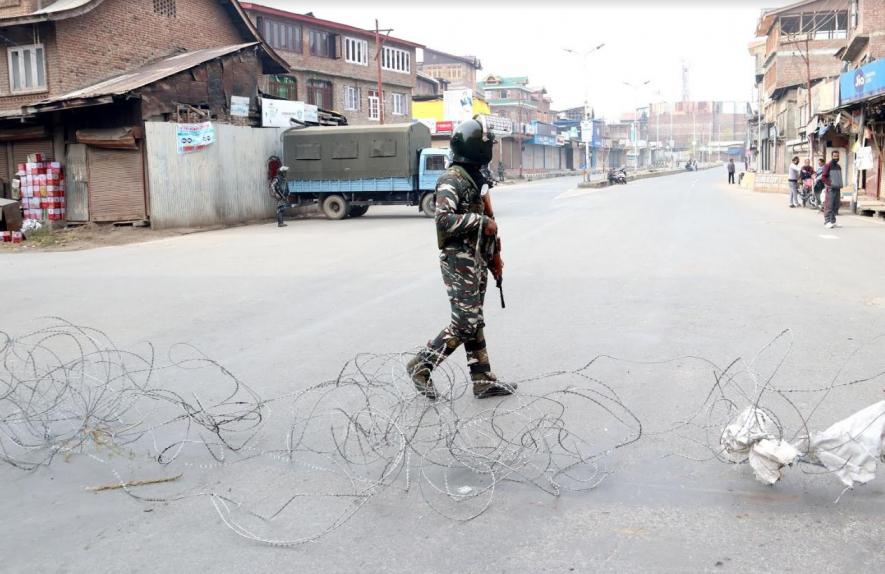
A young man from Kashmir had nothing positive to report. Asked how he was he first said, “fine.” Then added, “I have high blood pressure now, I cannot sleep at night, I do not know who will barge in when. I just needed to get away, even for a few days.” His parents are getting him married, “they are rushing through it as they do not want us to be alone.” So one asked him if there was anything civil society in Delhi could do to help.
His immediate, firm but polite response, “no thank you, we do not need any help. We Kashmiris are all for each other, we are helping each other.”
This is the overwhelming sentiment amongst Kashmiris, a silent bonding that has excluded the world. In 35 years of covering and writing on Kashmir one has never seen this kind of isolation, where not a single voice seems to be talking of any kind of rapprochement with the Indian state. Those who did during the last phase of militancy in the early 1990’s are all in jail. There is no one to voice links that were kept alive even during the worst periods by political leaders with certainly more credibility (which is not saying much) than those who have emerged now around the establishment.
The Kashmiris today seem to be working around a grapevine that has overtaken mobile phones and the internet ---word of mouth strengthened by a certain understanding and unspoken sentiment that erupts at crucial moments. At least crucial for them, such as the visit of the European Union MEPs when the youth in different parts emerged to clash with the security forces, and ensure the imposition of a curfew that then made the headlines in the world media.
Television propaganda that is on display every other night, is being countered by the eight million Kashmiris who have formed a tight knit community to not just protest, but help each other. Shops in districts open according to local timings ---often from 6 am ---for the people to buy their essential commodities and shut down by 9 a.m. Efforts by the authorities to ensure open markets through the day are thus belied, as the shutters remain down and the people indoors. This is partly out of design, and also out of fear as parents are terrified of letting their young wards out on the streets less they be apprehended and not return home.
Staying indoors without any distraction is extracting a major toll, with panic attacks, depression, blood pressure cases rising steadily. Militants too are making their presence felt, with innocent Kashmiris now being placed back into the 1990’s with a gun on each temple. In the process, however, the reaching out to individuals in Delhi and other parts of the country has altogether stopped. The conversations, the meetings, the banter has ended with the Kashmiris trusting no one but themselves.
Social links of debate have snapped, as the non Kashmiri population across India has either accepted the propaganda or is just not willing to reach out now. The hostility thus is self perpetuating with the gulf between both Kashmiris and non Kashmiris widening dramatically. The usual accusation one heard from people of the Valley against Delhi’s indifference is no longer voiced, it is taken for granted and hence not even spoken of any longer. Instead the“we do not need your help, we need nothing from you, thank you” sentiment has taken hold of the population in the Valley that has clearly no expectation left outside its geographical boundaries.
Weddings in the Valley are taking place, but indoors without fanfare. Deaths are equally isolated with the families carrying out last rites without attendance. As a journalist said he came to know of his close aunt’s death only three days after. There is little joy left, no exultation over perceived or real setbacks for the government, just a quiet resignation that often struggles in the youth with hopelessness. This, as a former security official said, is most dangerous as it reduces the gulf between the young man and the gun.
It will be 90 days on November 5 since the Valley has been cut off from the world. Normalcy has acquired new definitions, created and real. The quiet underlying anger and alienation is not voiced angrily, it just exists. It is voiced through what might appear as silence to those not conversant with the Kashmiri, but is a drawing of impenetrable boundaries between the Valley and the rest of India. The ‘no thank you’ today says it all as it allows no room for discussion, a quiet rejection that speaks volumes. And should worry policy makers as it is louder than the gun.
Get the latest reports & analysis with people's perspective on Protests, movements & deep analytical videos, discussions of the current affairs in your Telegram app. Subscribe to NewsClick's Telegram channel & get Real-Time updates on stories, as they get published on our website.









